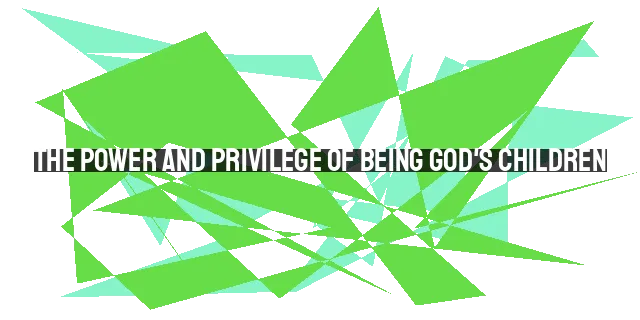The Christian Perspective on Halloween: Embracing Good, Avoiding Evil
God, Frankensteins, and More: A Christian Perspective on Halloween
Halloween has always been a controversial holiday for Christians. From its pagan roots to its commercialization, it can be difficult to discern how we should approach it as believers. As October 31st approaches, many believers are wondering if they should participate, and if so, how. In this article, we will explore the Christian perspective on Halloween, including its history, its current cultural context, and how believers can engage with it in a way that honors God.
The History of Halloween
The origins of Halloween can be traced back to the ancient Celtic festival of Samhain, which was celebrated on November 1st. Samhain marked the end of the harvest season and the beginning of winter, a time when the boundary between the living and the dead was believed to be blurred. The Celts believed that on the night before Samhain, the ghosts of the dead returned to earth, and they would light bonfires and wear costumes to ward off evil spirits.
When the Romans conquered the Celtic lands, they incorporated some of the Samhain traditions into their own festivals, including the Feast of Pomona, which honored the Roman goddess of fruit and trees. Pomona's symbol was the apple, which may be why bobbing for apples became a popular Halloween activity.
Over time, Halloween evolved into a Christian holiday known as All Saints' Day or All Hallows' Day, which was celebrated on November 1st. The night before became known as All Hallows' Eve, which later became Halloween. All Saints' Day was a day to honor all the saints and martyrs of the Christian faith, and All Souls' Day, which was celebrated on November 2nd, was a day to pray for the souls of the dead.
The Cultural Context of Halloween
Today, Halloween is a secular holiday that is celebrated primarily in the United States and other Western countries. It has become a multi-billion dollar industry, with Americans spending billions of dollars on candy, costumes, and decorations each year.
While some Christians choose to abstain from Halloween altogether, others see it as an opportunity to engage with their community and share the gospel. Many churches host fall festivals or trunk-or-treat events as an alternative to traditional trick-or-treating. These events provide a safe and fun environment for kids to celebrate the holiday while also hearing about Jesus.
However, some Christians are concerned about the darker aspects of Halloween, such as the promotion of witchcraft and the occult. They believe that participating in Halloween is tantamount to endorsing these practices.
A Christian Perspective on Halloween
So, what is the Christian perspective on Halloween? While there is no one-size-fits-all answer, there are some principles that we can apply to help us discern how to approach it.
1. Avoid Evil and Embrace Good
One of the most important principles for Christians is to avoid evil and embrace good. This is a biblical principle that is found throughout the Bible. For example, Romans 12:9 says, "Abhor what is evil; hold fast to what is good."
When it comes to Halloween, this principle means that we should avoid anything that promotes evil or glorifies darkness. This includes things like witchcraft, sorcery, and other occult practices. We should also avoid costumes or decorations that are gory, violent, or demonic.
At the same time, we should embrace anything that promotes good and glorifies God. This includes costumes or decorations that are wholesome, fun, and uplifting. We can also use Halloween as an opportunity to share the gospel and show God's love to our neighbors.
2. Use Discernment
Another important principle for Christians is to use discernment. This means that we should carefully consider our actions and choices and seek God's guidance in all things. Proverbs 3:5-6 says, "Trust in the Lord with all your heart, and do not lean on your own understanding. In all your ways acknowledge him, and he will make straight your paths."
When it comes to Halloween, this means that we should use discernment in deciding how to participate (or not participate) in the holiday. We should consider our own convictions, the impact on our witness, and the potential harm to ourselves or others.
3. Engage with Your Community
Finally, as Christians, we are called to engage with our community and show God's love to those around us. This means that we should seek opportunities to build relationships with our neighbors and share the gospel with them. Matthew 5:14-16 says, "You are the light of the world. A city set on a hill cannot be hidden. Nor do people light a lamp and put it under a basket, but on a stand, and it gives light to all in the house. In the same way, let your light shine before others, so that they may see your good works and give glory to your Father who is in heaven."
When it comes to Halloween, this means that we can use the holiday as an opportunity to engage with our neighbors and show them God's love. We can participate in trick-or-treating, host a fall festival, or simply hand out candy and strike up conversations with those who come to our door. Whatever we do, we should do it with a spirit of love and hospitality, seeking to build relationships and share the gospel.
Conclusion
Halloween can be a difficult holiday for Christians to navigate, but it can also be an opportunity to engage with our community and share the gospel. As we approach October 31st, let us seek God's guidance and use discernment in deciding how to participate (or not participate) in the holiday. Let us avoid evil and embrace good, use discernment in all things, and engage with our community in a spirit of love and hospitality. By doing so, we can honor God and show his love to those around us.



POST COMMENT
For post a new comment. You need to login first. Login
COMMENTS(0)
No Comment yet. Be the first :)